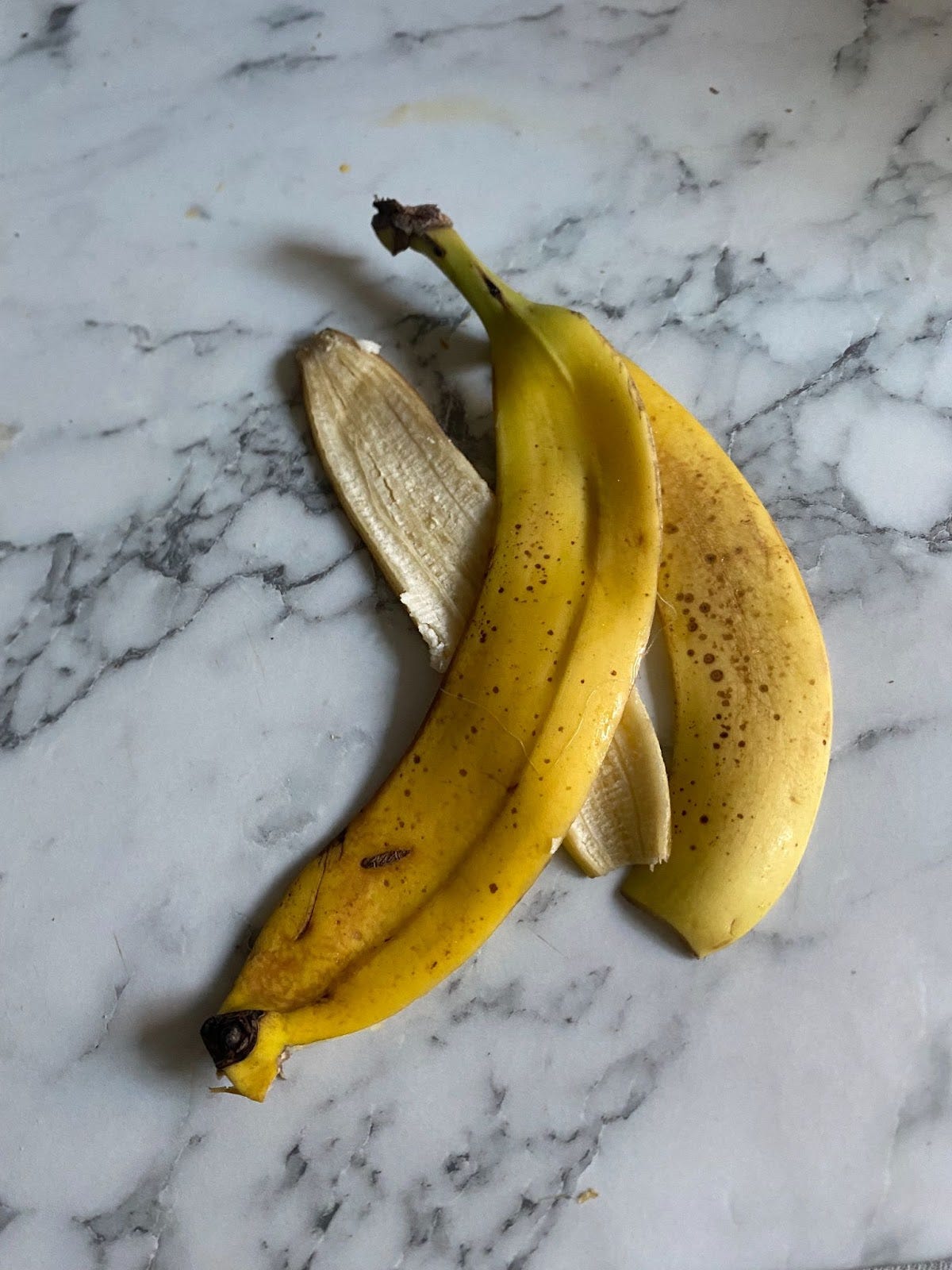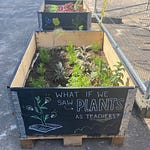I want to begin this reflection with a question: What does it mean to hope and act with creation? I am sitting with this question because it arises from the theme of the 2024 Season of Creation.
If you are wondering what the Season of Creation is, you are not alone. It is a relatively new rhythm in the Christian liturgical calendar, but it is also one that is taking root in the soil of a renewed Christian imagination in which hoping and acting with creation is not an optional add-on for eco-warrior types, but rather a vital thread woven into fabric of discipleship for all followers of YESHUA.
So, what exactly is the Season of Creation? It is described on the Season of Creation website, as:
" . . . a time to renew our relationship with our Creator and all creation through celebration, conversion, and commitment together. During the Season of Creation, we join our sisters and brothers in the ecumenical family in prayer and action for our common home."1
It spans from September 1st (which is the beginning of the church year for the Orthodox Church) until October 4th (the feast day of St. Francis of Assisi, the patron saint of ecology in the Catholic Church). BTW: If you are curious and looking for inspiration for ways to mark this Season of Creation, there is a proper cornucopia of resources available on this website here.
Here, at our local parish, St. Patrick's Catholic Church, we are experimenting with ways to contextualize and commemorate the Season of Creation. So far, these include:
Weaving in some liturgical resources that are provided on the Season of Creation website;
Bigging up and supporting what is happening in the geographical parish/ walking-distance sense of neighbourhood (e.g., the B16 Big Lunch as a annual neighborhood festival)
Creating a culture of learning and sharing through testimony during the Sunday liturgy
This year the first day of the Season of Creation, also known as the World Day of Prayer for Creation, actually landed on a Sunday. During the homily slot, I was invited by our parish priest to give a testimony related to the Season of Creation.
As an entry point into the theme, "Hope and Act with Creation," I told a version of the following story:
My personal journey towards learning to "hope and act with creation" has a distinct “before” and after.” The 'turning point' had to do with a friend speaking truth while holding a banana peel.
Let me explain by flashing back to 2007: I had studied biology at university, and then gone to a graduate degree in theology. So, I had acquired a lot of info and "book knowledge" about biology and Christian theology. And I probably recycled as best I could. But if you had asked me then, “Sam, how do you actively hope and act with creation?," I would have stumbled for an answer.
The turning point for me happened when I encountered a friend in Brazil who was turning his balcony into a productive vertical garden. His solution was as simple as it was profound — instead of throwing away his food discards, he composted them in a wormery to make soil and grow food. While I was fascinated by his description of how his fifth-floor garden worked, what impressed me most were the reasons he was doing this. Claudio explained that his little balcony garden was an experiment in finding ways to treat creation as creation, and not as rubbish, for honoring the Creator as Creator, and for offering signs of hope and life amid so much urban waste.
When I mentioned wanting to do this from my fourth-floor balcony, instead of giving me a pep talk, he gave me a warning instead:
"Sam, of course, you can compost your food scraps from your balcony, and you should. But I have to warn you that if you do, it may be the most subversive thing that you can do inside your home."
I must have look perplexed, so he did a little show-and-tell exercise by picking up a decomposing banana peel out of his wormery to make the point:
"In our tradition, we are told by our ancestors that in the beginning, God created and said, 'It is good.' This banana peel that I am holding is good. When God sees it, God says , 'It is good.' And if God says, 'It is good,' then who gave us the right to call it rubbish [or lixo, in Portuguese]. By whose authority do we get to call this banana peel lixo and treat it like lixo?"
Of course, I had no direct answer for that question, and I am still haunted by it nearly 20 years later.
To break the awkward silence, Claudio began to answer his own question : “The truth is we are not authorized to treat it like lixo. And if you begin to handle your own food scraps—like this banana peel—as creation, then it will never be lixo again. You will see it as creation, and you will rethink what lixo is and what we are called to do with creation.”
Claudio’s parting shot: “Então, mano . . . composting food scraps is subversive because it is about learning to repent and rethink how we treat God’s good creation.”
That was the turning point or “coin drop” moment for me, and I am still learning to repent, rethink and reimagine how to treat creation as creation.
Through that banana peel epiphany, I came to realize that in order to hope and act with creation, the first step is to learn to see creation as the good work and gift of the Creator. In this way, we can observe the patterns that the Creator has woven into creation and work with them, not against them.
When Claudio held up that banana peel and spoke his testimony, that banana peel became a microcosm of the whole creation. Somehow, I saw the whole world in that banana peel. What changed and converted me was not more information or killer stats, but the presence of the truth that God does not do waste.
That moment was a kind of unveiling that exploded my previous conception of ecological activism. No longer was activism fundamentally about doing to or even for the environment, but more deeply, working with the divine patterns woven into creation. In the deepest sense, I came to see that composting our banana peels (for example) makes sense not because it will save the planet, but because it is a sign of what it means to hope and act with creation, and not against.
The good news that we overheard and celebrated in last Sunday's liturgy is that God does not waste anything, and that we are graciously invited to mimic this divine pattern of attention and care. Learning to mimic and join in these Creator-woven patterns is the primary work that makes it possible to hope and act with creation.
Thanks be to God!
Over the next four Sundays (at St. Patrick's) and Fridays (here on this Substack), we will look at the garden as a demonstration of and metaphor for what it means to hope and act with creation. Each week we will reflect on common pattern at work in the garden.
(We will follow the contours of this illustration by Zoya Ahmed)
Week 2 - Planting
Week 3 - Tending
Week 4 - Harvesting
Week 5 - Returning
As an outro, I want to end as I began —with a question:
Can you recall an epiphany, a "coin drop moment, a "before & after" in terms of your own experience of ecological care? Has there been a distinct 'turning point’ or has it been more a gradual, ongoing path of learning to hope and act with creation? (Please share in the comments).
https://seasonofcreation.org/about/










Share this post